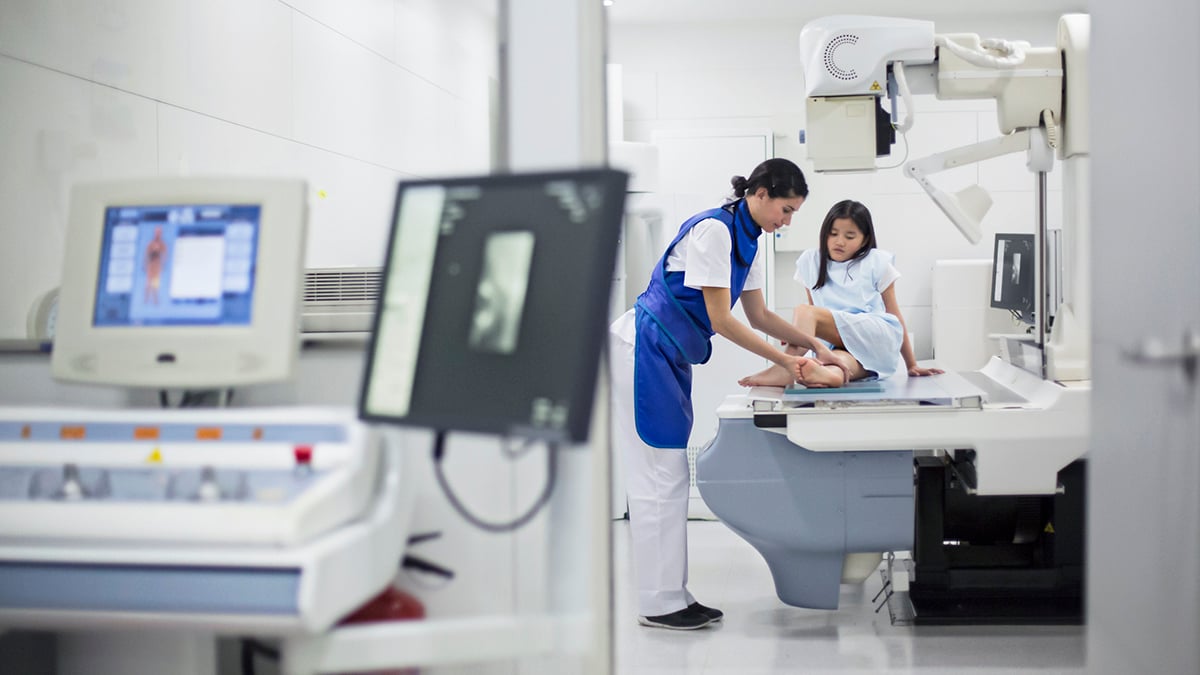Key points
- Exposure to workplace ionizing radiation can impact hormonal function and fertility in both men and women.
- Exposure to ionizing radiation during pregnancy might increase risks of adverse reproductive outcomes, including having a baby with a birth defect.
- Learn more about protecting your reproductive health from ionizing radiation.

Why I should worry about ionizing radiation

Ionizing radiation is what people usually think of as "radiation." It is both naturally occurring and man-made. The most common types of ionizing radiation include alpha and beta particles, gamma rays, and X-rays.
Ionizing radiation is used in manufacturing processes, electric power production, medical imaging (e.g., x-rays), and radiation therapy to destroy cancerous cells.
Ionizing radiation is a known reproductive hazard. When the reproductive organs receive a large dose of ionizing radiation, it can damage fertility in both men and women. Ionizing radiation exposure during pregnancy has been linked to miscarriages, low birthweight, birth defects, and other reproductive problems.
Who is exposed to ionizing radiation
Healthcare and veterinary workers who are:
- Caring for patients receiving radioactive materials (e.g., Iodine-131)
- Assisting with fluoroscopy procedures
- Working around portable X-ray machines
Other jobs with a higher risk include:
- Certain industrial and laboratory workers
- Aircrew (flight attendants and pilots)
What I can do to reduce or eliminate exposure
Exposure to ionizing radiation is well regulated in most U.S. workplaces. Guidelines are in place for pregnant workers and should be followed closely.
Talk to your supervisor and the workplace radiation safety officer, or to your state's department of radiation protection. A radiation protection expert can give you guidance about radiation in your specific workplace, and what the regulations are.
Aircrew are exposed to ionizing radiation at levels which may be of concern during pregnancy. Consult the NIOSH aircrew website, the Association of Flight Attendants website or contact CDC-INFO for more information.
Resources
Getting help
Talk to your supervisor, workplace safety officer, or your state's department of radiation protection. If you aren't sure who in your state handles radiation safety, this directory might help get you started.
For information on the Pregnant Workers Fairness Act, please see resources from the U.S. Equal Employment Opportunity Commission (EEOC) website.
Talk to your doctor about your work with ionizing radiation.
